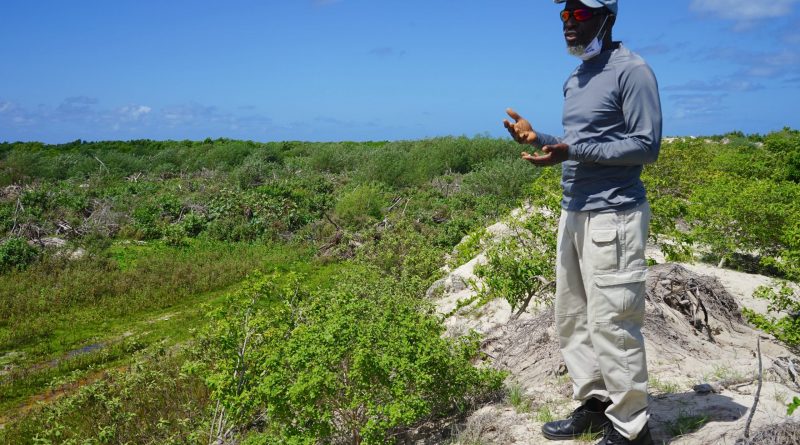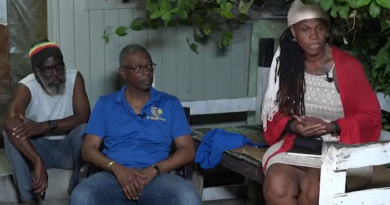Mussington describes Govt’s actions at Dunbars as ‘ecoside’ and says Barbuda was testing ground
“Ecoside.” This is how the Browne Administration’s actions at the
Dunbars Agricultural Station are being described by marine
biologist and environment activist John Mussington.
The research and agricultural facility is being destroyed to facilitate
the development of upscale housing in the area, according to
Agriculture Minister Paul “Chet” Greene.
The destruction that has already taken place – with respect to crops
and trees and their irrigation system – has been expansive and
expensive, observers say.
Mussington likens the happenings at the Dunbars site to what the
Browne Administration has been doing on Barbuda for the past
several years with regard to lands.
He says the unfolding Antigua situation is very serious, since all the
resources needed for the country’s sustained survival are being
destroyed.
Mussington recalls that a delegation from Antigua and Barbuda
recently took part in the COP 28 conference.
These meetings are a forum that pushes for environmental
protection; and yet, this administration is destroying the
environment through the devastation of farm lands, he notes.
Therefore, he concludes that this type of forum continues to be only
a talk-shop for some leaders.
The environment activist says the destruction of the Dunbars
Station – where several different types of soil are to be found – was
foolish; and it shows that this administration has no vision and is
indifferent to the country’s food-security endeavours.
Meanwhile, Mussington believes that Barbuda was a testing ground
for the Browne Administration to determine how many and which
international treaties could be broken without repercussions. Now,
the Government is making similar attempts on Antigua.
Once prime agricultural lands are destroyed by erecting concrete
structures, you cannot get the land back, the Barbuda councilman
warns.
Hence, he is asking why the Cabinet decided to make this decision,
knowing that agricultural lands are scarce.
Marine biologist and environment activist John Mussington.




